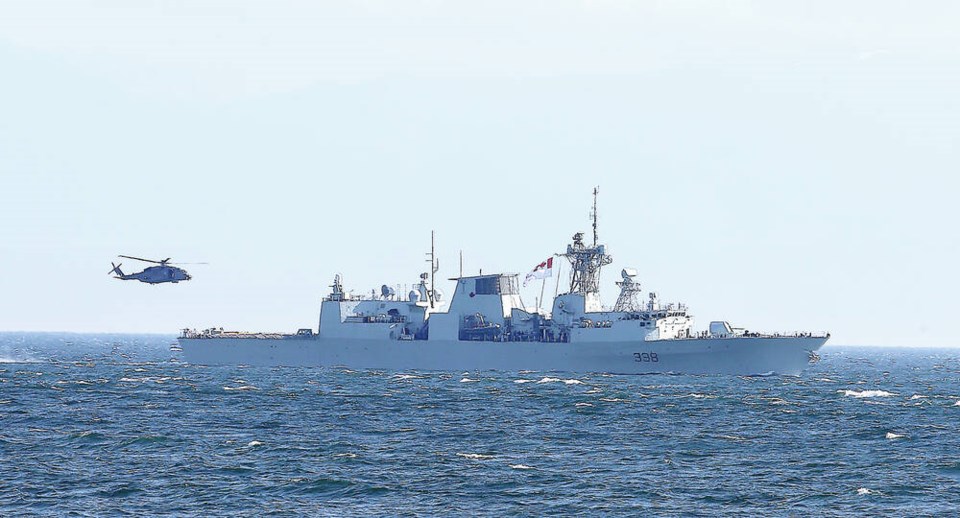There is an amusing reward for plowing through the Sept. 28 commentary, “Achieving a more balanced and affordable naval fleet,” a call for more warships at a reduced price.
Toward the end, one finds that either the writer or a TC copy editor may have been victimized by that electronic gremlin that plagues us all from time to time: spellcheck. The piece reads “Canada’s peace and security cannot be ascertained.” On the other hand, perhaps that is what the writer meant, as opposed to other terms like “assumed.”
I hope so. For if we are indeed in a time when we cannot be certain about the future, then there is room to debate alternatives.
The essence of the commentary is an admirably detailed call for more warships, with more sophisticated weaponry, with costs reduced in part by replacing unarmed vessels such as our Arctic Offshore Patrol Ships.
The eye-catching parts are the numbers themselves. If the proposal is implemented, we will only have to pay $40 billion instead of the currently projected $80 billion. Wow!
When the writer describes the intended uses for this $40 billion weapons package, some might conclude that we are being offered a bargain on apples in the midst of global shortage of oranges.
Remember, we are being asked to abandon what $40 billion would buy in schools, health care, saving the planet, and a host of other priorities. Should we make that choice?
To decide, we need to look carefully at the reasons proffered for purchasing the warships. The commentary said that Canada has only 12 combat capable ships, while China has 500 and the U.S. says it needs 373.
For what? The commentary answers with slogans that I suspect we are not meant to examine critically, including one that is verbatim from the current Department of National Defence public relations campaign: “Canada must be strong, secure and engaged.” What does that mean?
It also says that the navy must be ready to participate in “security operations” anywhere in the world. And to be a “prominent nation,” Canada must always be ready to “protect itself” and “if necessary to aid its allies should they come under attack.” That’s about it.
That $40 billion makes it worthwhile to examine these reasons more closely. The 16 warships proposed, or 24 or 48 warships, won’t protect Canada. Fortunately, the likelihood of foreign naval invasion, even by current bogeyman Putin, remains considerably smaller than the chance that all British Columbians will have access to a doctor.
What about “security operations” and “aid its allies should they come under attack”? Those, my friends, are simply euphemistic phrases for standing by to do what the U.S. wishes, which is Canada’s historic world role — currently with the U.S., formerly with the British — as our patrons.
And forget about the “should they come under attack” part. Our patrons have never required that before they call on us.
The current naval situation is eerily similar to that in the runup to the Great War, that symbol of tragic imperial blundering that some of us continue to remember fondly around Remembrance Day while at the same time using the death of the Queen to piously condemn imperialism.
Britain, feeling threatened by a German naval buildup, called on Canada to build more warships and put them at her disposal. Prime Minister Wilfrid Laurier was under pressure both from imperialists on one side and his friend, and opponent of involvement, Henri Bourassa on the other.
Laurier proposed a modest force, similar to the one presented in the commentary. Even that was ridiculed as a “tin pot navy” and failed to pass, but Canada eventually answered Britain’s call in a far more deadly manner.
The comment on which I have now commented was a well-thought-out, reasonable proposal — if we wish to continue neglecting our greater needs and skewing our priorities. In my respectful submission, our future at this point really cannot be “ascertained”, or “assured” for that matter. So let’s put one another first and worry later about how many frigates we want to buy.



